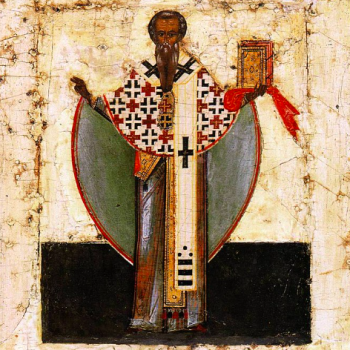 Lectionary Reflections: Year A
Lectionary Reflections: Year A
7th Sunday after Epiphany: February 20, 2011
Leviticus 19:1-2, 9-18
What has a Christian to do with Leviticus? Does that most unknown portion of the Torah, filled as it is with obscure food laws (chapter 11), peculiar sex laws (chapter 20), and lengthy instructions about proper priestly activity (chapters 1-10), have anything to say to those of us who have heard Peter say in the book of the Acts that all things that come from the hand of God may be eaten (Acts 10:9-15), who have read the Song of Songs as a celebration of sexual pleasure, and who have learned from the book of Exodus that all may be priests in a holy nation (Ex.19:6)? Here is our problem in a nutshell: Leviticus presents to us a quite foreign worldview, one distinctly different from our own. It will not do to drag a verse or two from this book into the 21st century and assume that it applies directly to our time.
The single reference to Leviticus in the Common Lectionary is the one we find for this Sunday in Year A. And the reason for its appearance is obvious. In chapter 19 we do not hear of the details of sacrifice or a sharp focus on laws against certain behaviors—though there are some of those here—or concerns for proper priestly actions. Here are laws that echo the more famous Ten Commandments (19:11-14; the command against stealing is mentioned twice!). And the most memorable line of all, perhaps the only line a Christian may be able to quote from the book, even though knowing that it in fact comes from this book is certainly rare, is found at verse 18: "you shall love your neighbor as yourself." This is, of course, part of Jesus' summation of the greatest of the laws of God, along with Deuteronomy's "love the Lord your God with heart, soul, and might" (6:5). (See Lk. 10:27 for the full recital of this greatest commandment, supplied by the lawyer anxious to win eternal life.)
But merely to quote this familiar line out of its Levitical context is not to understand what it may have meant to the priestly class who wrote it. We need to try to follow the priests and their special concerns if we are to appreciate what they tried to do. The central concern of the priestly writing is enshrined in 19:2: "You shall be holy, for I YHWH your God are holy." The translation "holy" rather nicely captures the rich connotations of the Hebrew "qadosh." The word means "other," "set apart," removed." Purity was the goal of the priests, and they extended their search for purity into every area of their lives. Hence their concern for eating rightly. Hence their concern for proper sexual relations. Hence their concern for right actions, right words, correct sacrifices, proper behaviors in all things.
We 21st-century religious types tend to label such attempts "rigid" or "cultish" or "narrow-minded." Why on earth should I worry about what I eat beyond reasons of my good health? I love shrimp, and eat it with gusto; why should I worry about what some ancient priest says about "anything in the seas or streams that do not have fins or scales" (11:10)? Then too, what impact ought such a priest to have on my behavior when he says, "If a man lies with a male as with a woman, both of them have committed an abomination; they shall be put to death" (20:13). Do we not find it absurd to cease heterosexual relationships with those we love if even a tiny drop of menstrual blood remains after a woman's period, because some old priest warns us against it (20:18)?
Yet, in each of these examples, a worldview is being presented; it is world where only certain things may be eaten, only men and women can engage in sex, and only when the woman displays no evidence of blood, since here "the life of the flesh is in the blood" (17:11). We certainly have the right to avoid all of this behavior, but we have no right either to pick and choose which one applies to our time (no homosexuality but shrimp is fine) or ridicule these priests for the search for purity and the holiness of God.
What we may learn from them is the serious attempt to live all of our lives as a search for holiness, not in the way they did, perhaps, but matching their most serious attempts to do so. When the priests warn us "not to render an unjust judgment" and "not to be partial to the poor or defer to the great" (19:15), they say such things because they find their God to be like that, thoroughly just to all God's people. And when they warn against "hating any of our kin (even) in our heart" (that is, silently and privately), they echo what they see in their God who hates no one in the great divine heart. And to "love one's neighbor as one loves oneself" is to act out the life of God, who cares especially for the neighbor and bids us to do likewise. That is a part of what it means to be holy as God is holy.





